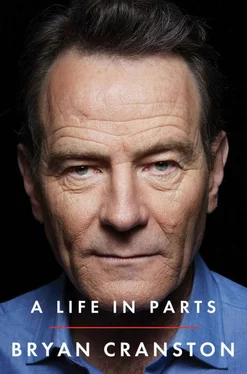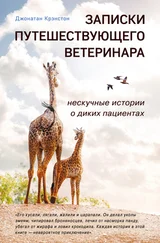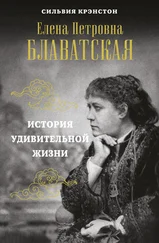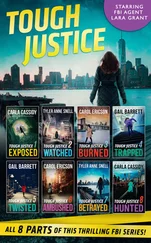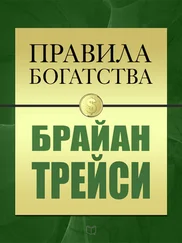On another occasion, Jim picked me up and we went to a small market that opened early. He grabbed a couple sodas, a few packs of cigarettes—the man could smoke—and six whole mackerels. An odd selection of groceries, but as I had come to know Jim… not that odd. I didn’t even bother to ask.
We drove to an unoccupied two-story modern in the Mount Olympus area off Laurel Canyon in the Hollywood Hills. We parked on the street in front of the house and Jim told me to grab the ten-foot ladder. He retrieved the hidden key from the planter near the back door and marched upstairs—I instinctively knew to follow. He pointed to a spot in the middle of the upstairs hall. I opened up the ladder on exactly that spot. He told me to climb up and open the air conditioning’s intake grill. I did. The filter plopped out of its resting place and I handed it to him. As I steadied myself about eight feet off the ground, I heard crinkling. I looked down and saw Jim removing the wax paper from the mackerel.
He calmly instructed me to throw the first one inside the AC ducting in one direction as far as I could. I threw it and we heard it slide fifteen or maybe twenty feet. He handed me another cold dead fish, this time telling me to send it down a different duct. I threw three fish in three directions. I replaced the filter and reaffixed the intake grill’s clasp. We methodically moved to the downstairs intake and repeated the steps. Three fish—three directions.
We returned to the truck and drove for a while in silence. When I couldn’t stand it anymore, I asked what it had all been about. “No other fish stinks like mackerel when it rots,” he said. They’d only expunge the smell by replacing all the air conditioning ducts and compressors. The whole system. It was another nonpayment situation. I asked if he ever tried small claims court. He smiled wider than I’d ever seen him smile. “We just did.”
My dad liked that the name Kim Edward Cranston sounded like King Edward Cranston, but when my mother suggested that they just name him King, Dad countered that it would be too hard for my brother to live up to that name, and it might confuse people. They might think it was our dog. Here, King! So, Kim it was, and Kim it remained for about a dozen years.
Kim always felt he got short shrift in the name department. Kim was a girl’s name, he’d say. Edward, his middle name, was slightly better, but I think he hated his options there, too: Ed, Eddie, Edward. Blah!
In high school he became Ed, the least objectionable of the bunch.
Ed joined the LAPD Explorers, a training ground for future police officers, after career day at Canoga Park High. In those days every high school, especially ones like ours in lower-middle-class areas, would host visits from service providers to get kids to start thinking about their lives after twelfth grade. I’m not sure exactly what drew Ed to the program, but I know what drew me. The first year my brother was in the Explorers, he took a trip to Hawaii. The following year he went to Japan. I was marking time at odd jobs while my brother sent postcards of white-sand beaches and torii gates. I stared a long time at those images, steeped in envy.
I joined the minute I reached the minimum age of sixteen. I had no designs on a career as a cop; I just wanted to travel the world. But in order to join the Explorers you had to go to the LAPD Academy for eight Saturdays in a row to study police work. Explorers were asked to man parade routes, help with minor traffic control, issue bicycle licenses, and participate in searches for evidence at crime scenes, among other duties.
Our West Valley Division was the cream of the crop. The big reason was Sergeant Roy Van Wicklin, Van to everyone except new recruits; you had to earn the right to call him Van. He’d been a paratrooper in the army in World War II, and he brought a soldier’s discipline to the Explorers. He was squared away. And he was tough, but only because he cared so much. He arranged for his division’s newbies to go through a Hell Weekend prior to the start of the regular academy with the rest of the division’s recruits. We studied police procedures and codes, drill formations. We trained like animals: eat, train, sleep, repeat. The older recruits made it extra hellish. It was a bitch. The consolation was knowing the shit you were taking, you’d get to give back to next year’s new crop.
Sergeant Van Wicklin set up a special trip to the morgue for us every year. Special. My ass. So many guys came up with lame reasons why they couldn’t make the trip: homework overload, my grandma needs me to walk her across the street, explosive diarrhea.
Those of us without the brains or the balls to make an excuse took the bus over together. I looked around and saw all the guys smiling tightly. Every one of us felt deep dread, though none of us showed it. Wouldn’t be manly.
The smell of formaldehyde—like pickle juice and aftershave—made my eyes water. We walked by a long row of bodies draped in white sheets. They seemed like zombie spectators settled in along a parade route to watch terrified teenagers shuffle past. I caught sight of a man’s bluish foot sticking out from beneath a sheet. Looking around, I realized that all the bodies had one foot uncovered, toe tag dangling—a way for the technicians to quickly locate the corpse they were looking for. Whatever these people had achieved in life, whatever they had seen or suffered, was reduced to a toe tag. That was the inevitable fact.
In another room, two men wearing rubberized jumpsuits casually chatted as they worked. Music played from a tinny transistor radio. They barely registered our presence. One was tending to a new arrival, a body in full rigor mortis—natural muscle stiffening that occurs shortly after death. We saw the technician snap the body’s extremities. We’d learn this part of the process was called breaking rigor. They released the muscles, preparing the body for the next step. No explanation could change how savage it seemed. It was hard to accept that bodies didn’t feel anymore.
The other man was washing a female body with a sponge and soapy water. I was sixteen. The only thing I wanted in life was to see a naked woman. To my great misfortune, this was my first. Well, outside of Playboy magazine, and accidentally seeing my grandmother stepping out of the shower.
Whoever she was—midtwenties, pretty—I wondered what her name was, how she died, whether her family was overcome with grief. A shuddering, overwhelming compassion moved through me.
BLAM! One of my fellow Explorers hit the ground. He’d fainted. Out cold. People rushed to his aid. He’d be all right. The technicians shared a smile.
A doctor was describing the protocol at the morgue, but his voice became background noise, like the teacher’s drone in a Charlie Brown cartoon. It wasn’t until we were almost out of the room that I noticed the song that had been playing on the transistor radio. The Everly Brothers hit “Wake Up Little Susie.” I’d never hear that song the same way again.
If breaking rigor and body washing was the warm-up act, then an autopsy was the main event. We watched a doctor cut a clean line through a man’s chest with an electric saw. At another table, a physician peeled back a woman’s scalp. Body cavities were opened. Fluids escaped. Organs were gently removed for study. Down went a couple more of my friends. They were carried from the room. Two others left so they wouldn’t have to be carted out. I focused on my breathing. My great chicken-shit epiphany crossed my mind, but I chose mouth-breathing in the end. If I breathed through my nose the formaldehyde would nauseate me. I wasn’t going to go down like my fallen comrades.
Читать дальше
